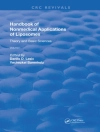In ‘On the Reception of the ‘Origin of Species, ” Thomas Henry Huxley delivers a compelling exploration of the contentious debates surrounding Charles Darwin’s groundbreaking theory of evolution. Drawing from a wealth of historical context, Huxley meticulously dissects the reactions—both fervent support and vehement opposition—that the publication of Darwin’s work inspired among contemporaries. His eloquent prose, rich with scientific clarity and philosophical insight, serves to illuminate the intellectual climate of Victorian England, as he positions himself not only as a supporter of Darwin’s theories but also as a pivotal figure in the discourse on evolution, ethics, and the nature of scientific inquiry. Huxley’s treatise is distinguished by its analytical rigor and persuasive argumentation, making it an essential text for understanding the evolution of scientific thought in the 19th century. As a prominent biologist and a staunch advocate for Darwinian thought, Huxley was often referred to as
Despre autor
Thomas Henry Huxley (1825–1895) was a prominent English biologist and anthropologist primarily known for his advocacy of Charles Darwin’s theory of evolution, earning him the nickname ‘Darwin’s Bulldog’. Huxley’s eloquence and rigorous scientific approach were instrumental in the widespread acceptance of evolutionary biology. In his seminal work ‘On the Reception of the ‘Origin of Species” (1887), Huxley championed Darwin’s ideas and meticulously addressed the myriad reactions and criticisms that followed the publication of ‘On the Origin of Species’. A prolific writer, his works ranged from technical papers on comparative anatomy to essays on education and philosophy. Huxley was renowned for his skillful articulation, which combined clarity and wit. As a leader in the scientific community, his contributions included serving as President of the Royal Society and helping to establish the renowned journal ‘Nature’. His literary and scientific endeavors laid the foundation for modern biological science and educational reform. Huxley’s work is marked by a commitment to empirical evidence and reason, which has left an indelible mark on the field of evolutionary biology and the broader discourse on science and religion.












